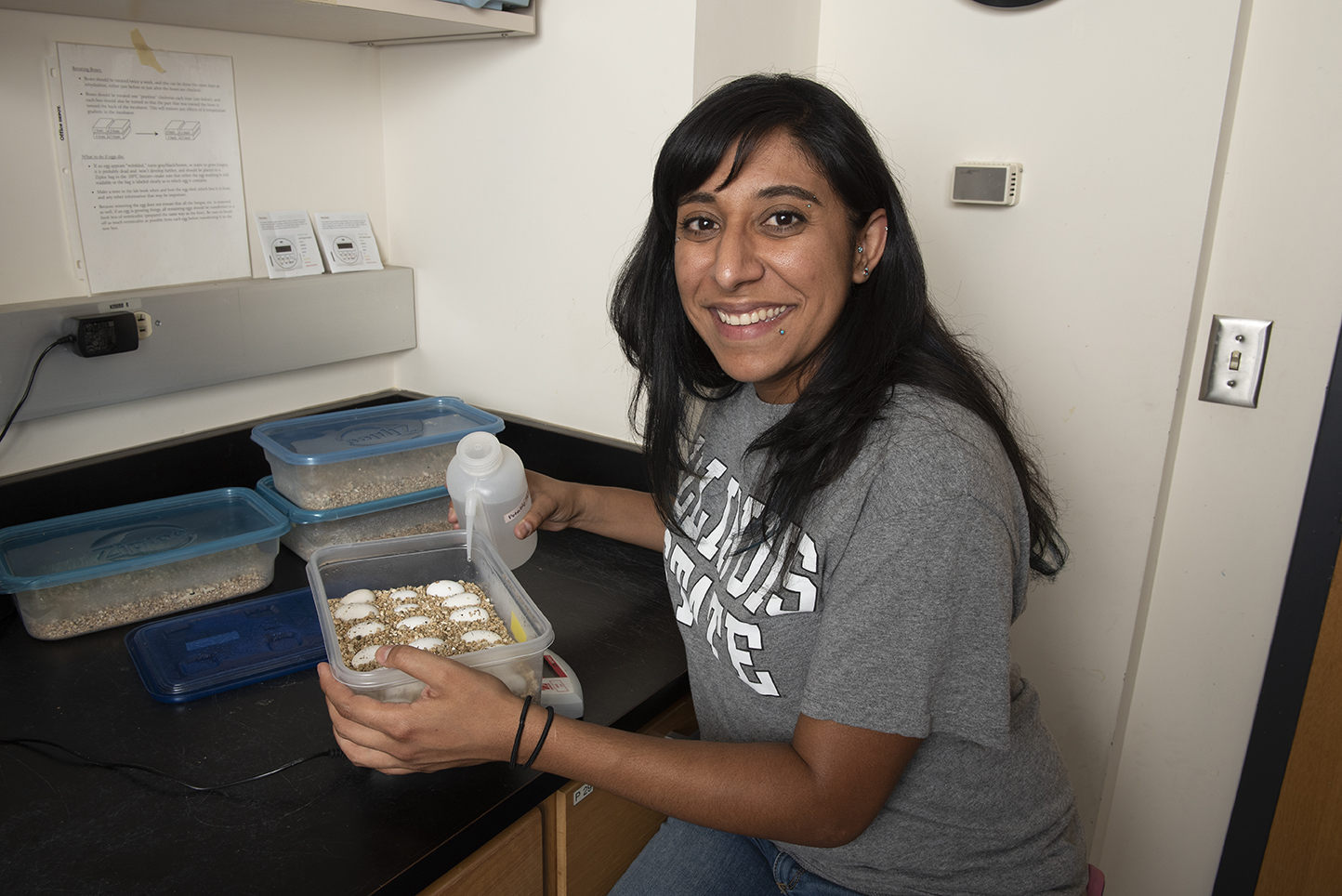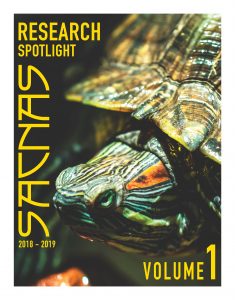A new organization on campus is helping student researchers prepare for their careers and promote their scholarship.
Rosario Marroquin-Flores, a Ph.D. student in the School of Biological Sciences, established an unofficial chapter of the national Society for Advancing Chicanos/Hispanics & Native Americans in Science (SACNAS) in February 2019 at Illinois State. SACNAS is an inclusive organization open to all students.
The Illinois State chapter has about 30 members, with slightly more graduate than undergraduate students. The registered student organization meets monthly and offers professional development opportunities to student researchers. For example, SACNAS ISU plans to host sessions on grant writing for the National Science Foundation and National Institutes of Health.
Appears In
SACNAS ISU has also created a journal, SACNAS Research Spotlight, spotlighting students who have published research in peer-reviewed journals. The publication highlights the selected students and offers a synopsis of their research. Marroquin-Flores has worked with SACNAS members Pooja Kadaba Ranganath and Eric Walsh to compile and edit the journal entries.
“Science publications are typically a very insular project, where scientists are the only ones who are reading other scientists’ writings and peer-reviewed publications,” said Walsh, a master’s student in the School of Biological Sciences. “So we have this idea of not only taking students’ research and making it digestible, and communicating to everyone, but also giving students their 15 minutes of fame, so to speak, for what it is that they’ve done for all their hard work.”
Kadaba Ranganath and Marroquin-Flores have been using resources like Arizona State University’s Ask a Biologist program to train themselves how to translate complex scientific research into writing that is easy to understand.

“I mean, if you cannot communicate what you do in lay terms, probably you just don’t understand it well enough,” said Kadaba Ranganath, a Ph.D. student in the School of Biological Sciences. “The Ask a Biologist template forces you to think more about your research and to tell readers, in like two sentences, what you actually do.”
The students hope the journal will increase the public’s understanding of scientific research.
“I think a lot of the problems that we have in policy decisions have to do with the failure to understand how science works and what scientific consensus means,” Marroquin-Flores said. “And I think a large part of the fault lands on scientists who fail to communicate their findings effectively. So that’s what I’m trying to do here. Hopefully, as we get better at communicating our science, we also build science literacy in the community, and overall people just learn more and more about what is happening on campus and what scientific research means.”
Marroquin-Flores was introduced to SACNAS as an undergraduate student at the University of New Mexico. During that time, she presented research on sea turtles at a SACNAS conference in San Diego. “I just had such a good experience, and it really just kind of motivated me to bring SACNAS here to ISU,” she said.
In fall 2018 she began laying the groundwork for the Illinois State chapter while serving a fellowship with the Yale Ciencia Academy for Career Development.
“I connected with one of the other fellows, and she became my accountability buddy, and we have been helping each other to build our own SACNAS groups at each of our institutions,” Marroquin-Flores said.
The group’s faculty advisor, Assistant Professor of Molecular Neuroethology Andrés Vidal-Gadea, said SACNAS is a great complement to the University’s efforts to provide students with out-of-class activities and resources aimed at increasing their competitiveness and success. “I find that mentoring students and helping them achieve their goals is one of the most rewarding responsibilities associated with serving as a faculty,” Vidal-Gadea said. “SACNAS brings to ISU a new and wonderful way to do just that. It welcomes all students regardless of demographics, and provides unique opportunities for networking, career advancement, and mentoring.”
The organization also plans to offer financial assistance to students who would like to attend SACNAS’s National Diversity in STEM Conference. This support is consistent with the group’s efforts to strengthen students’ science identity. Many students suffer “impostor syndrome,” a feeling that they are not a real scientist, Marroquin-Flores said.
“It’s a really big problem, specifically for underrepresented students,” she said. “It tends to be a problem because you’re surrounded by a community that’s very distinct from you, and you just don’t feel like you belong there.
“One of the biggest things we are trying to do is build science identity and a sense of community, and a sense of self-worth for the students that we interact with. Building science identity is critical for retaining students in the sciences. I think that all of the things that we’re doing will lead to that.”
SACNAS published the first issue of its student research journal in March. Students interested in volunteering as an editor for the next issue of the publication should contact sacnas.isuspotlight@gmail.com.
Keep up with SACNAS on Facebook, Instagram, and Twitter.
Kevin Bersett can be reached at kdberse@IllinoisState.edu.



very interesting,helps me to more understand a little more of what my granddaughter Madi is doing with her life and opportunities,very proud of her